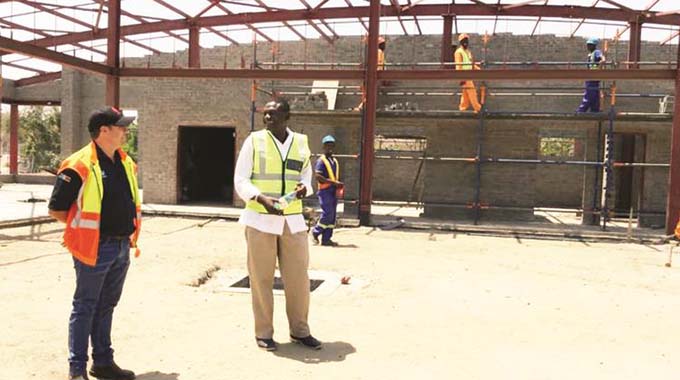National Ports Authority long overdue

Thupeyo Muleya Beitbridge Bureau
Governments across the world are implementing a number of strategies to remove trade barriers and enhance the smooth flow of people within their countries’ borders to boost international trade and realise the envisaged global village dream.
That drive has seen Zimbabwe coming up with a host of ideas to promote the ease of doing business at its borders.
These include the upgrading of the Robert Mugabe International Airport and the modernisation of the Beitbridge Border Post at a cost of US$241 million and the introduction of the One Stop Border Post (OSPB) concept.
The OSPB has since been adopted by the Common Market for East and Central Africa (Comesa) and is being implemented by Zimbabwe and Zambia at Chirundu Border Post.
Additionally, in 2006 Sadc chose Beitbridge, bordering South Africa and Zimbabwe to initiate a similar concept, which has since then failed to take off due to a number of challenges, among them bureaucratic processes in Zimbabwe and South Africa and the shortage of infrastructure.
Under the OSPB, the two countries sharing a border harmonise operations to simplify the way business and travellers are cleared for passage into either country.
It is also understood that the lack of an authority or border efficiency management committee on the part of Zimbabwe has been the greatest undoing in the take-off of the noble initiative and the improvement on the ease of doing business.
In the last decade, the situation at Beitbridge had become chaotic, though it has relatively improved in the last two years.
According to the Zimbabwe Revenue Authority (Zimra), on average the revenue body processes 6 000 trucks per month from South Africa at Beitbridge.
Further, an average of 450 000 travellers, 4 000 buses and 35 000 private cars use same border per month and it is understood that after the modernisation of Beitbridge Border Post, the border will carry five times its current capacity.
At the height of the chaos, the volume of travellers and importers using the port dwindled as the border turned into a free for all with dozens of border agencies implementing varied programmes more often conflicting each other.
Such a scenario presented a nightmare for people importing or exporting goods in Zimbabwe with most travellers and importers pointing fingers to the stakeholders at the border, chief among them Zimra.
However, Zimra say some of the delays were a result of human resource shortages.
This shortage of manpower has also given leeway to the current crop of border authorities who extort money from stranded travellers in order to expedite services.
Analysts believe that, the lack of coordination and accountability of several stakeholders at the border has created a lot of room for rent-seeking and inefficiency.
In 2014, the Cabinet approved the setting up of the National Ports Authority (NPA) to coordinate operations and attend to teething challenges at the port of entries on the dot, just like what is happening with South Africa, the country’s largest trading partner.
Five years down the line, the NPA is yet to see the light of the day due to alleged red-tape in some corridors of Government.
According to the proposal, the NPA will fall under the Ministry of Transport and Infrastructure Development, and will be charged with the running affairs at all the country’s entry and exit points. Such a port authority will deal with operations, security and health issues.
Some of the stakeholders at the border posts currently include; the Department of Immigration, insurance companies, Zimra, Zimbabwe Republic Police, Zimbabwe National Army, Air Force of Zimbabwe, Zimbabwe Prisons and Correctional Services, Ministry of Health and Child Care, Environmental Management Agency, Forestry Commission, Ministry of Transport and Veterinary Services Department among others.
In most cases, people are finding it difficult to raise issues of concern in a set up where there is no-one in charge or any authority superintending operations.
It is also believed that the NPA will attend to among other issues, the expansion and upgrading of the border infrastructure and also put systems in place which would make Zimbabwe a best trade partner. The availability of key infrastructure at Beitbridge is crucial to the successful implementation of the one stop border initiative with South Africa.
Government is encouraged to operationalise the proposed NPA to improve service delivery and efficiency and to streamline the number of agencies at the border, just like what the Civil Aviation Authority of Zimbabwe is doing at the airports.
Further, there is a need to synchronize operations at the borders to minimise the number of checkpoints and the processes an importer or traveller spends on a simple process.
It has become apparent that the NPA is the missing link to the envisaged Government policy in the ease of doing business.
In essence, any investment without accountability and coordination of stakeholders at the border will be a waste of time and resources.









Comments